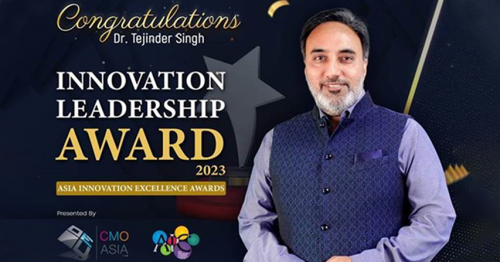PM Narendra Modi-Xi Jinping informal meet in Wuhan to reset ties
In an attempt to complete the “reset” of bilateral ties with China, Prime Minister Narendra Modi and Chinese President Xi Jinping will meet at an “informal summit” in Wuhan, the capital of central China’s Hubei province on April 27 and 28.
The informal summit was the key takeaway after External Affairs Minister Sushma Swaraj and Chinese State Councillor and Foreign Minister Wang Yi met in Beijing Sunday on the sidelines of the Shanghai Cooperation Organisation (SCO) foreign ministers meet.
Sources told The Indian Express that the initiative to have the “informal summit” came from Beijing, but New Delhi took its time to take a call on the invitation considering the “diplomatic pros and cons” involved.
Modi’s visit — a month-and-half before he is scheduled to visit Qingdao in June for the SCO summit — is being perceived as a reach-out to Beijing, as New Delhi does not want a repeat of 2017 — when ties between the two countries were strained — particularly in an “electorally sensitive year”.
The informal summit will also mark Modi’s fourth visit to China since he assumed power in 2014 and a second bilateral visit. He made the first bilateral visit in 2015 followed by a visit to Hangzhou to take part in the G-20 summit in 2016 and BRICS summit in Xiamen last year.
The announcement caps a two-month-long process of rapprochement with China, which started on February 22 when the government sent out a note asking senior leaders and government functionaries of the Centre and states to stay away from events planned to mark 60 years in exile of the Dalai Lama. Then, Foreign secretary Vijay Gokhale had underlined that it was a “very sensitive time” for India’s relations with China.
Wang, who was recently elevated to the position of State Councillor, announced the “informal summit” — rare between India and China — and said, “The two leaders will exchange views on over-arching long-term and strategic matters concerning the future of China-India relations.”
“We will make sure that the informal summit will be a complete success and a milestone in China-India relations. We see socialism with Chinese characteristics entering a new era and India acts as a crucial stage in its development and revitalisation. It is against this backdrop that President Xi and Prime Minister Modi have decided to hold the informal summit.”
After the meeting, Swaraj said, “My discussion with Minister Wang Yi was to prepare for the informal meeting between our leaders. It will be an important occasion for them to exchange views on bilateral and international matters with an objective of enhancing mutual communication at the level of leaders.”
“We believe that our commonalities outweigh our differences and that we must build on our convergences while seeking mutually acceptable resolutions of our differences,” she said.
Wang echoed Swaraj’s words, as he said that the “common interests far outweigh our common interests.”
Swaraj and Wang’s comments come after a year of strained ties between the two countries, which witnessed a two-and-half-month border stand-off at Doklam between Indian and Chinese troops.
While many believe that the Dalai Lama’s visit to Arunachal Pradesh from April 4 to April 12 last year had provoked Beijing to make diplomatic and military moves that impacted ties adversely for much of 2017, Gokhale’s note on February 22 and his subsequent meeting with Wang and other officials in Beijing on February 23 this year had started the process of mending fences with China.
Through much of 2017, Beijing retaliated and expressed its anger including cancelling Wang’s visit to India for a trilateral meeting in April. Beijing had then stopped sharing hydrological data on the Brahmaputra starting mid-May, which was followed by the Doklam stand-off from mid-June. The border stand-off was resolved only in August end, just ahead of Prime Minister Modi’s visit to Xiamen in China for the BRICS summit in October.
On Sunday, Swaraj pointed out that China has assured India about “data sharing on Sutlej and Brahmaputra rivers in 2018”. “As it directly affects lives of people living there we welcome this,” she said. She also said that the Kailash Mansarovar Yatrawill resume this year through the Nathu La pass, which was also disrupted last year.
Wang, in his statement Sunday, said, “In our view, the global situation is undergoing a profound change… China and India are growing simultaneously and rapidly… this makes for a more balanced geometry and a stronger trend towards peace.”

Calling each other “natural partners”, the Chinese State Councillor said that the two have no choice other than pursuing everlasting friendship, mutually beneficial cooperation and a common development.
Former foreign secretary S Jaishankar called the decision to have a bilateral informal summit a “bold step forward” and welcomed the move by the government.
Chinese envoy to India, Luo Zhaohui tweeted, “Looking forward to witnessing the upcoming historic informal summit between Chinese and Indian leaders. Truly an honour.”
In March, Wang Yi had said that the two countries needed to shed mental inhibitions and mutual suspicion to improve bilateral ties. “The Chinese dragon and the Indian elephant must not fight each other but dance with each other. If China and India are united one plus one will not equal two but 11,” he had then said.
“While making efforts to progress our relations in diverse areas, we underlined that maintaining peace and tranquillity in the India-China border areas is an essential pre-requisite for the smooth development of bilateral relations,” Swaraj said, underlining the emphasis New Delhi laid on the border dispute.
After the Doklam border stand-off ended in August last year, Modi and Xi met in Xiamen on the sidelines of the BRICS summit, followed by Modi’s meeting with Chinese Premier Li Keqiang in Manila, on the sidelines of East Asia summit in November.
In the build-up to the informal summit, the two countries, over the last two months have held at least eight meetings at various fora.
“The progress made in the last few months has also contributed to building trust and understanding in our bilateral engagement,” Swaraj said, adding that the two sides have discussed perspectives on counter-terrorism, climate change, sustainable development and healthcare.
This was a reference to the various outstanding issues on which New Delhi and Beijing have sharp differences — from India’s entry into the Nuclear Suppliers Group, the listing of Jaish-e-Mohammad chief Masood Azhar as a designated terrorist at the UN and the China-Pakistan Economic Corridor — among many others.
tag: news
Share This Post






